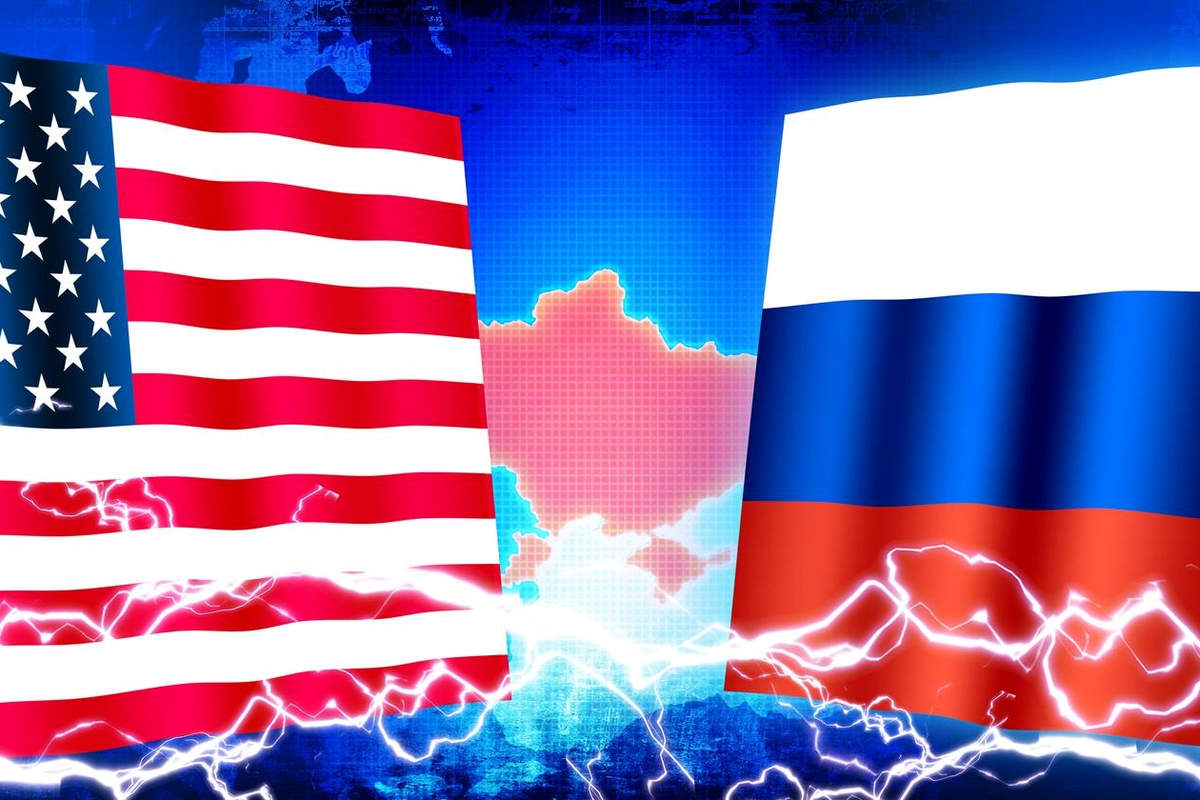Viewpoint. On March 21, 2023, Vladimir Putin, in the presence of Xi Jinping, officially unveiled the nature of the war with the United States, “We are for the use of the Chinese yuan in settlements between the Russian Federation and countries in Asia, Africa and Latin America.”

By Régis Chamagne
If Vladimir Putin says this now, it is because the conditions are met: diplomatic, military, economic and financial.
A brief reminder
Briefly, let’s remember that American power is based on the dollar as the world’s reserve currency. This state of affairs allows the United States to feed the Ponzi pyramid on which the dollar is based because countries around the world need dollars for their trade. The mission of the American army is to impose the dollar on the whole planet and to punish recalcitrant countries when they come forward: Libya, for example, which had ambitions to launch a pan-African currency linked to gold. The collapse of the dollar will therefore be the real witness to the geopolitical paradigm shift.
A word of clarification
To fully appreciate the significance of Vladimir Putin’s statement, one thing must be kept in mind: official statements by heads of state do not generally announce an intention, but most of the time they reveal a process that has already begun and been validated, they evoke a fait accompli. Thus, if Vladimir Putin has announced the end of the dollar’s hegemony, it is because the matter has been underway for some time and has reached its critical point, where the American economy is in great danger. So much so that the issue was recently discussed on CNN; the economist invited to debate the issue simply said that de-dollarization would be a disaster for the United States and the American people, that it would lead to hyperinflation in the United States.
The mistake of the US and the EU
Moreover, beyond the technical explanations, the failure of certain American banks may be only the foretaste of the global collapse of the Ponzi pyramid.
The state of play
In the financial sphere, the US and the EU dug their own graves, back in 2014, by excluding some Russian banks from the SWIFT interbank exchange system. This prompted Russia and China to develop their own systems. Today, China’s CIPS will support exchanges between countries outside the West. But SWIFT is not only a financial system, it is also, and perhaps above all, a precious intelligence tool, because it allows to know all the commercial exchanges between the countries of the world. Thus, economic exchanges between countries outside the West will become increasingly opaque to the United States and the West in general. This is a shame.
In parallel, the Shanghai-based BRICS New Development Bank (NDB) was officially opened in July 2015. Dilma Roussef has just been appointed as its head. All the tools are therefore in place for the development of trade outside the dollar. Moreover, the Indian central bank now authorizes international payments in Indian rupees and Saudi Arabia is preparing to sell its oil to China in yuans; this is the end of the petrodollar.
Diplomatic meetings
In the diplomatic field, things are accelerating and events are following one another. Let’s mention the most recent ones, less than a month old:
- Re-establishment of diplomatic relations between Iran and Saudi Arabia, under the auspices of China.
- Reception of Bashar al-Assad by Vladimir Putin in Moscow. In this regard, we will have to follow the operations in Syria and the fate of the American military installations there.
- Bashar al-Assad and his wife travel to the United Arab Emirates.
- Iran and Iraq signed a security cooperation agreement to stop CIA-backed Kurdish activities.
- Xi Jinping received by Vladimir Putin in Moscow.
- Xi Jinping received Luiz Inacio Lula in Beijing for five days.
- Russia-Africa forum in Moscow with African leaders.
This diplomatic sequence comes after a year of great change in the world. Gradually, the non-aligned countries have moved from a posture of benevolent neutrality to implicit support (to say the least) for Russia, as evidenced by the rejection of Western countries by Africa and the recent Russia-Africa forum. More importantly, the two organizations that underpin the emerging new geopolitical paradigm, the Shanghai Cooperation Organization (SCO) and the BRICS, are increasingly attractive.
Russian dolls
Recall that the SCO is shaped like a Russian doll, with member countries in the first circle, observer countries in the second and discussion partners in the third circle. The meeting in Samarkand on September 15-16, 2022, clarified Iran’s obligations to join the organization, launched the process of approving Belarus as a member state, and agreed to make Egypt, Saudi Arabia, Qatar, Bahrain, the Maldives, the United Arab Emirates, Kuwait and Myanmar new discussion partners.
As for the BRICS, under China’s initiative of the “BRICS Plus” format in May 2022, the organization will be able to open its door more easily to future members. There are currently four official applications: Algeria, Argentina, Iran and Mexico; countries that all have some regional weight. There are also many expressions of interest, not yet official: Saudi Arabia, Turkey, Egypt, Indonesia, Afghanistan, Pakistan, Kazakhstan, Nicaragua, Nigeria, Senegal, Thailand, United Arab Emirates, Bangladesh, Philippines, Vietnam, South Korea.
We are witnessing the tipping of the world towards this new geopolitical paradigm which is being put in place more and more rapidly and concretely.
Military operations in support
In my previous article, I mentioned the possibility of at least two strategic options for Russia in its war in Ukraine. It now seems reasonable to think that Vladimir Putin, with the support of China and others, has opted for the predominantly economic option of strangling Western countries, with military action serving the “dominant thrust.
Seen from this angle, Russian strategy and tactics in Ukraine take on a different meaning. It is a question of making the war last by a tactic of slow but continuous nibbling, destroying the successive armies raised by Ukraine and NATO until the exhaustion of the West, economically and consequently militarily.
Let’s quote in this regard Yevgeny Prigogin who had declared on November 28, 2022: “Our task is not Bakhmut (Artyomovsk) itself, but the destruction of the Ukrainian army.” The word “task” is important, because it clearly means that Wagner has a specific mission, so in coordination with the Russian General Staff.
By having made Bakhmut-Artyomovsk a strategic objective militarily, but especially symbolic, the Russians attract Ukrainian units that, offloading other parts of the front, are laminated one after another. The maintenance of 600,000 men along the front line also offers the possibility of strategic offensives in several places, thus a permanent threat that poses a headache for the NATO staff.
Alongside this strategy of attrition and exhaustion, Russia is asserting its technological superiority through the sparing and judicious use of hypersonic missiles to dissuade NATO countries from taking the extra step. A recent salvo of six missiles, one of which reportedly destroyed a secret NATO headquarters on the outskirts of Kiev, sends a clear message: six hypersonic missiles are enough to sink six American aircraft carriers simultaneously.
The collapse of the dollar is underway
What next?
Virtually, Russia has already won against the US and NATO. The emergence of a multipolar world has accelerated dramatically over the past year, especially in recent weeks, and is becoming a reality before our eyes. The collapse of the dollar is underway and we can predict a succession of Western bank failures and hyperinflation in the short term.
On the ground, Russia will reintegrate Novorussia into its federation. How? Either by a quick military offensive once the Ukrainian army is totally exhausted, or through negotiations in which it will impose its conditions.
In the old world, the fall of the dollar will lead to a collapse of the standard of living in the United States, to the point where one wonders whether the Union will survive this shock, and by domino effect, a fall of the Western and European economies. We will witness the dismantling of NATO and the EU and insurrectionary phenomena, not necessarily violent, leading to regime change.
This will be an opportunity for France to recover its sovereignty and its place in the world if the new regime is worthy of it.

